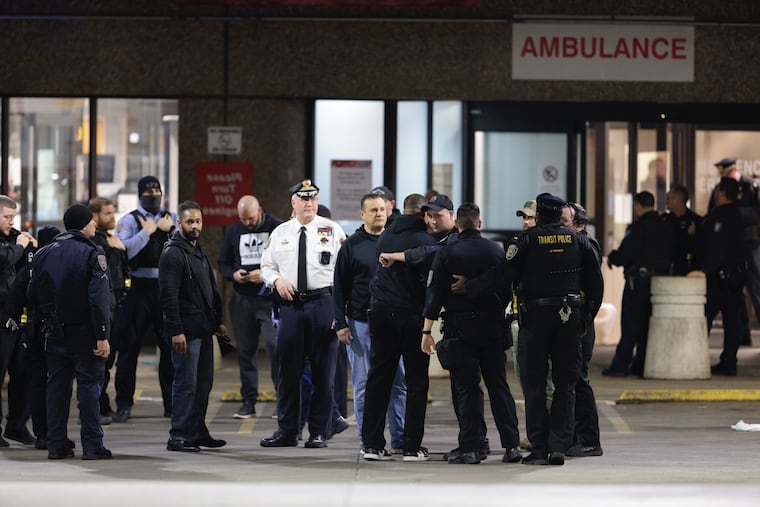Transit police are getting raise as SEPTA struggles with crime and unruly passengers
SEPTA says the move will help it recruit and retain new officers.

Amid a public outcry about increased crime and antisocial behavior on the region’s public transit system and difficulty recruiting and hiring candidates for SEPTA’s police force, the transit agency has agreed to raise starting pay for officers a stunning 25%.
Rookies who have graduated from the police academy will earn $62,387 before overtime, up from $49,387, under an agreement between SEPTA management and the Fraternal Order of Transit Police Lodge 109.
Pay for Transit Police candidates in the police academy will jump 21% — from $46,536 to $56,507, just under what Philadelphia Police Department recruits get.
Authority officials said they needed higher pay to attract new officers and to keep those who are early in their careers from jumping to more lucrative jobs after two or three years on the force. The officers’ union has long pressed that case to management.
The move also comes as SEPTA continues to struggle to recover ridership, which dropped during the height of the pandemic, and perceptions of danger don’t help bring people back. Average daily ridership now hovers at about 53% of pre-COVID levels, or roughly 520,000 passengers.
“Our customers can only realize transit’s affordability, equity, and sustainability benefits if they feel comfortable riding on SEPTA, which is why we’re committed to doing everything we can to keep our system safe,” the authority said in a statement.
The agency also believes transit officers should be rewarded for their hard work, spokesperson Andrew Busch said.
Under the agreement, SEPTA also will shorten the time it takes to reach the top pay rate for patrol officers, about $71,000, to 24 months from the current nine years.
Veteran transit officers also will see higher wages, officials said, but the rate of increase will be slower.
Spending on safety and security will increase by about 50% to $53 million for the 2023 fiscal year, which begins July 1. That includes stepped-up investments in social-service workers and security guards. Changes in the transit police pay scale will go into effect as early as Sunday, the agency said.
FOTP Lodge 109 leaders sought a meeting with SEPTA management to discuss pay earlier in the spring. They reached agreement on raises after about six weeks of talks. The union’s contract expires in 2023.
Union leaders did not immediately respond to a request for comment on the plan.
» READ MORE: Reports of aggravated assault and robbery on SEPTA soared during the pandemic as ridership fell
Aggravated assaults and robberies in SEPTA stations, transit hubs, and vehicles rose more than 80% between 2019 and 2021, the agency said. Homicides and rapes were rare, and thefts fell 18% during that period.
Riders of SEPTA’s Market-Frankford Line have complained on social media of rampant disorder: smoking, open use of IV drugs, and human waste and garbage in stations and on trains.
The department is already stretched thin, the transit police union says.
SEPTA has 210 police officers, including command and administrative staff, union president Omari Bervine said in an April interview with The Inquirer. That leaves 150 to 160 patrol personnel, he said, and many of them are assigned to specialized units rather than to walk beats.